Theme II: Mitigating climate change
In the Netherlands, the current emission of CO2 equals approximately 164 Megaton per year, with different contributions by the sectors of energy (30%), industry (22%), road transport (18%), built environment (15%), and agriculture (5%). The remaining 10 % is of miscellaneous origin. The energy sector produces electricity for use in other sectors such as the built environment. Including the non-CO2 greenhouse gases, the total emission amounts to 193 Megaton CO2-equivalents per year.
In order to limit climate change impact, all sectors of the modern economy must take effective measures to reduce greenhouse gas emissions, ranging from short term actions for rapid emission reduction, such as efficiency measures, to the long-term development of non-fossil-based energy systems.
Such systems range from energy production, conversion, distribution, and storage technologies, deployed in interconnected infrastructures and markets. Therefore, new energy market policies are needed. Ultimately, we have to move to a circular economy in which we close the water, energy and nutrient cycles.
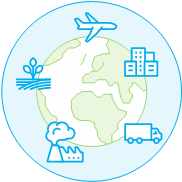
At TU Delft we strongly believe that we need to develop a portfolio of innovative energy technologies for the short as well as for the long term, with radically new technologies and improvements of technologies that are already available to us.
Flagship project
Inorganic capture and mineralization of CO2: Looking beyond Amines
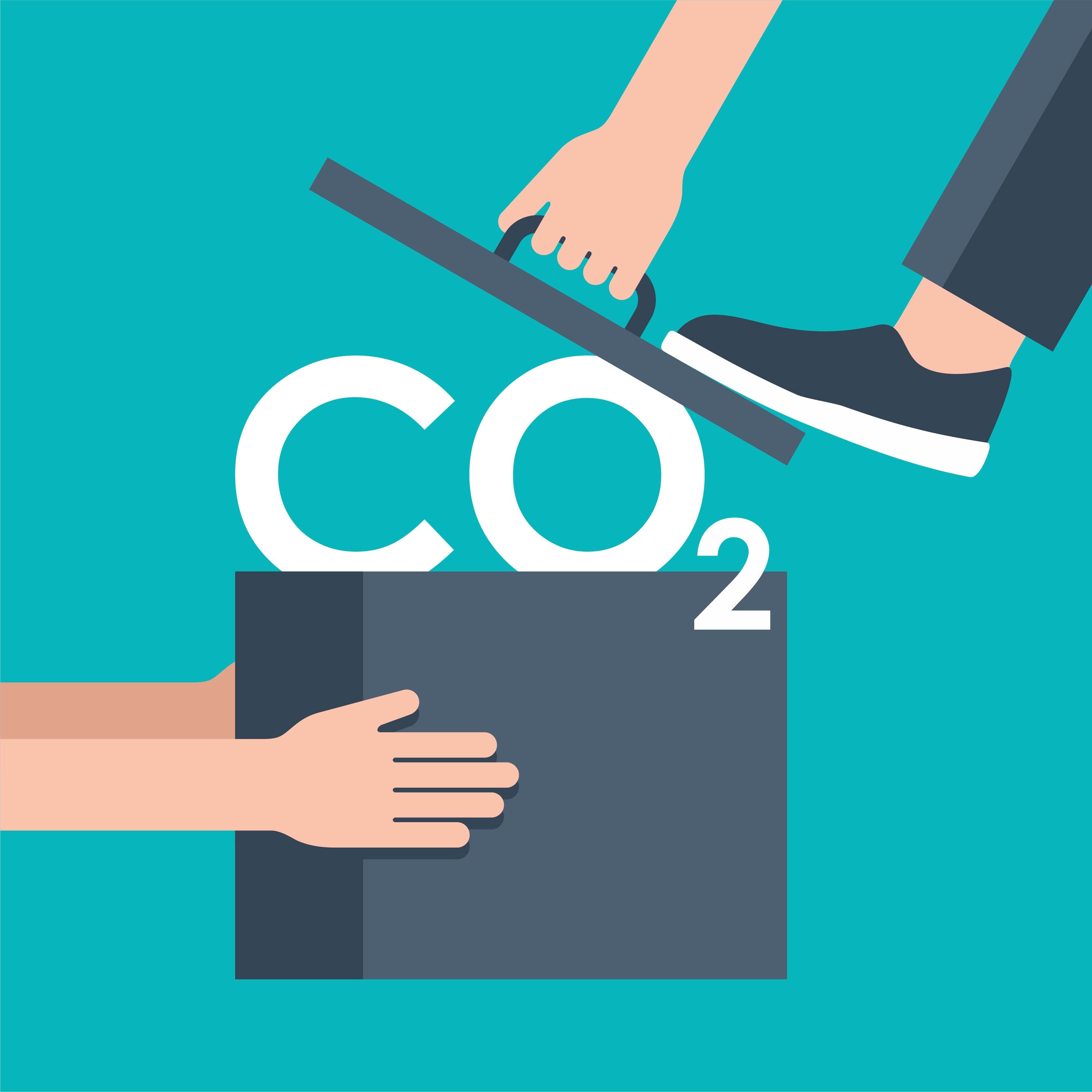
The energy transition and electrification of industrial processes demands a new set of separation technologies, driven by renewable electricity and targeting CO2 and other products in a sustainable industry. Particularly, negative emission technologies are indispensable for closing the carbon cycle by 2050 and imply large scale deployment of CO2 capture technologies in the next decades. The transition to a zero-emission society needs new CO2 capture technologies that are 1) energy-efficient, 2) with low chemical waste, and 3) are compatible with various CO2 sources and subsequent storage or utilization processes.
We will strengthen the research on innovative separation technologies. This research may include “beyond the-state-of-the-art” selective CO2 capture and mineralization technologies, applied to a broad spectrum of applications ranging from direct (air or ocean) capture to complex gas mixtures characteristic in industrial effluent streams such as flue gas. The captured CO2 can be utilized for storage in porous media or used as resource for electro-conversion (building on the existing expertise of TU Delft’s e-Refinery institute), where similar separation challenges appear in the post-treatment.
Flagship team
Hans Geerlings
David Vermaas
Bernard Meulenbroek
H.Burak Eral
Ruud van Ommen
Monique van der Veer
Tim Nijssen
Hanieh Bazyar (Academic Career Tracker)
Flagship project
Scaling the Circular Economy; an integral design approach
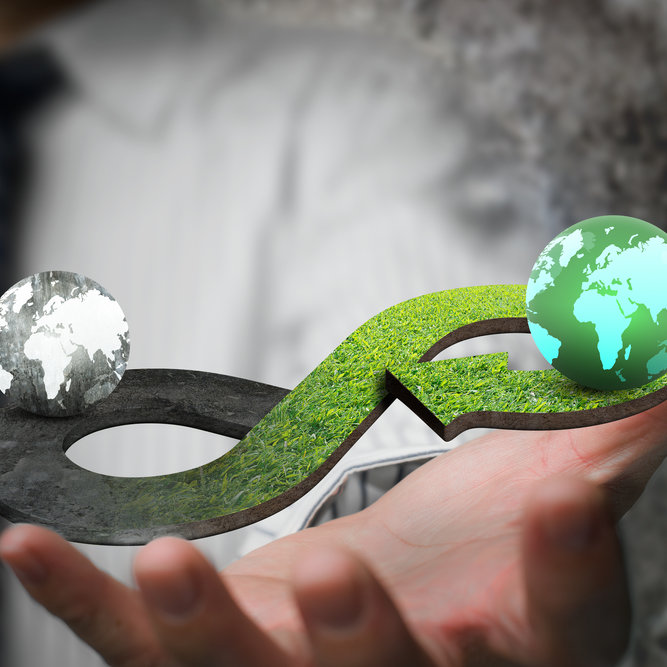
In the context of reducing CO2 emissions, addressing the production of products and infrastructures we use every day (e.g. cars, clothes, food, roads, and utilities), which is responsible for 45% of our CO2 emission, is indispensable. Circular strategies such as reuse, repair, refurbishment and remanufacturing, can contribute to GHG emissions reduction but often these solutions fail to speak to all stakeholders and remain in the prototype stage: they are never implemented or scaled and get stuck in the ‘Valley of Death’. This project aims to develop effective methods to engage multiple stakeholders in the design, development, implementation, and scaling of circular innovations, in particular those related to products, services and business models. The overall goal is to realize a circular economy where the value of products and the materials they are made of can be preserved by keeping them in the economic system, either by lengthening the life of the products formed from them, or ‘looping’ them back in the system to be reused.
Flagship team
Conny Bakker
Ruud Balkenende
Yumiko Henneberry
Gijsbert Korevaar
Ruth Mugge
Patricia Osseweijer
Daan Schraven
Tekla Komlossy (PhD)
Sonja van Dam (Academic Career Tracker)
Flagship project
Circularity of plastics and non-fossil energy carriers
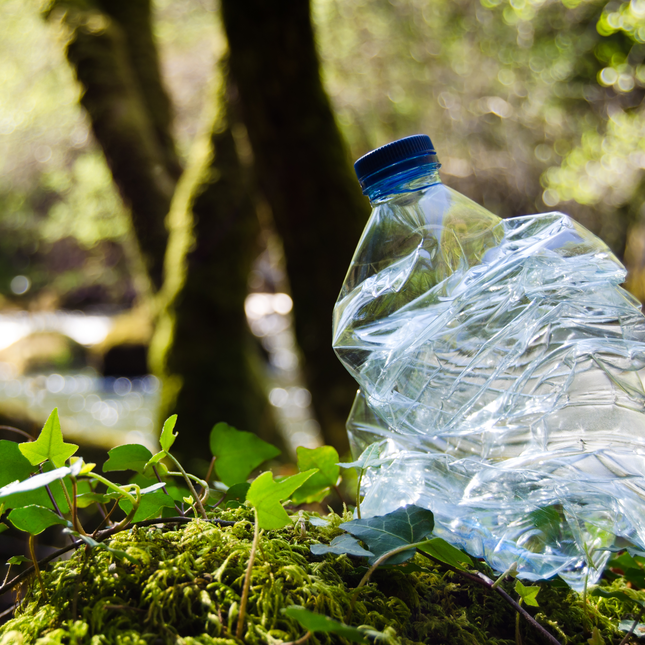
Envisioning a paradigm shift from a fossil-based economy to a renewables-based one, chemical building blocks, final products and chemical energy carriers need to be produced via entirely differently pathways with minimal carbon footprint. While fossil oil is the main resource for many of our daily products such as fuels, base chemicals and plastics, we want to replace this carbon source by CO2 and renewably powered conversion technologies for a more circular and greener economy. We will develop an experimentally oriented research line, supported by system and component level (dynamic) modeling, towards the use of waste plastics, possibly in combination with renewable carbon feedstock, in processes that 1) recycle plastics via thermo-chemical conversion integrated with e.g. electrochemical conversion and/or 2) produce plastics from captured CO2 using renewable energy sources, including intermittent power sources.
Flagship team
Wiebren de Jong
Atsushi Urakawa
Ruud Balkenende
Olindo Isabella
Ruud Kortlever
Wim Uijttewaal
Irene Fernandez Villegas
Luis Cutz (Academic Career Tracker)
Flagship project
Materials for circular renewable energy technologies
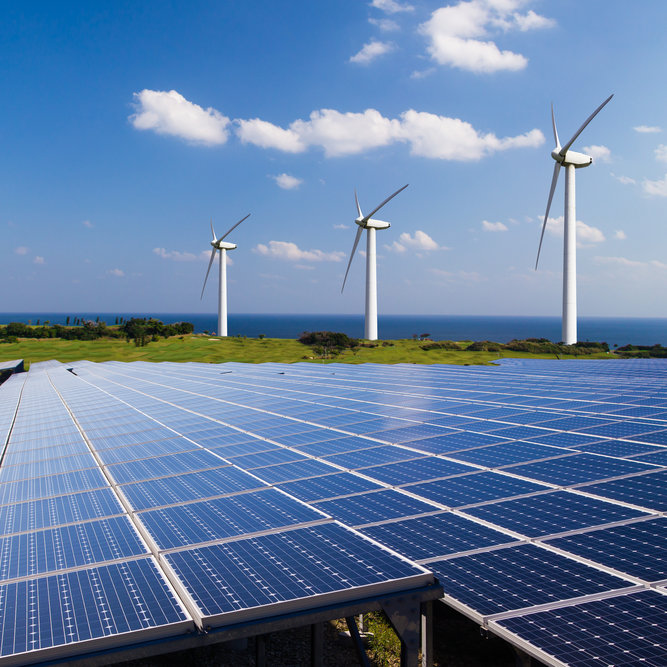
The current transition towards using renewable energy implies a transition towards the increased demand of different raw materials as well. How can the supply of sufficient materials for solar panels, batteries, electrolyzers, etc., when we want to scale renewable energy technologies such that we keep below 1.5 degrees warming and reach a CO2 neutral society by 2050?
In this framework, we aim at contributing to the emerging Circular Economy concepts. The focus will be on generic-use products and devices that are by-design closed loop and eventually recyclable and drive the energy transition (e.g., photovoltaic modules, power electronics, battery banks, etc.) by slowing and diversifying the supply of materials.


![[Translate to English:] [Translate to English:]](https://filelist.tudelft.nl/_processed_/c/c/csm_IMG20190920151153%20%281%29%20%281%29_e7da13f4b0.jpg)
![[Translate to English:] [Translate to English:]](https://filelist.tudelft.nl/_processed_/2/3/csm_Thumbnail_Design_engineering_10ff19fec6.jpg)
![[Translate to English:] [Translate to English:]](https://filelist.tudelft.nl/_processed_/e/c/csm_gcrfhwst_1920_9821108d50.jpg)
![[Translate to English:] [Translate to English:]](https://filelist.tudelft.nl/_processed_/1/1/csm_shutterstock_293228549_fa2971a20e.jpg)
![[Translate to English:] [Translate to English:]](https://filelist.tudelft.nl/Websections/Climate%20Action/logorad.png)
![[Translate to English:] [Translate to English:]](https://filelist.tudelft.nl/_processed_/9/d/csm_Wind_header_00ee6fd3f6.jpg)
![[Translate to English:] [Translate to English:]](https://filelist.tudelft.nl/News/2016/03_March/Jan-Leen_Kloosterman_DSC_4125_300x224_03.jpg)
![[Translate to English:] [Translate to English:]](https://filelist.tudelft.nl/_processed_/3/1/csm_Henri_Werij_FlyingV_flyingabovesea%5B1%5D_1098aba9ef.jpg)
![[Translate to English:] [Translate to English:]](https://filelist.tudelft.nl/_processed_/2/0/csm_Thema_Traffic_data_analysis_2_68ed43acc4.jpg)
![[Translate to English:] [Translate to English:]](https://filelist.tudelft.nl/EWI/Over%20de%20faculteit/Afdelingen/Electrical%20Sustainable%20Energy/DC%20Systems%2C%20Energy%20Conversion%20%26%20Storage/Electrical%20Sustainable%20Power%20Lab/f5a8d2ec9c%5B1%5D.jpg)
![[Translate to English:] [Translate to English:]](https://filelist.tudelft.nl/_processed_/b/d/csm_banner%20website%202020_c3390b83ad.jpg)
![[Translate to English:] [Translate to English:]](https://filelist.tudelft.nl/_processed_/c/c/csm_nasa-Q1p7bh3SHj8-unsplash_6ad7c3e7d3.jpg)
![[Translate to English:] [Translate to English:]](https://filelist.tudelft.nl/_processed_/d/2/csm_shutterstock_251888335_4a558d82d3.jpg)